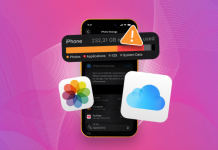 When iOS 5 was announced, and previewed last June, many expected it would drastically influence the text messaging world, but no one really knew just how deeply the technology would alter millions of text messaging fiends once Apple shipped iOS 5 the following October. We’re just now starting to get some information on how iMessages is turning the entire text messaging industry on its head.
When iOS 5 was announced, and previewed last June, many expected it would drastically influence the text messaging world, but no one really knew just how deeply the technology would alter millions of text messaging fiends once Apple shipped iOS 5 the following October. We’re just now starting to get some information on how iMessages is turning the entire text messaging industry on its head.
Neven Mrgan, of Panic, Inc. fame, and the man behind the graphics of the popular iOS game The Incident, decided to check his text messaging stats and provide some information about how deeply iMessage has disrupted his text messaging usage. As it turns out, his usage is down, way down:
Three months into iOS 5, I’m using a trivial quantity of text messages. I currently pay $10/month for up to 1000 messages. Assuming these bill at 20c/message (it varies depending on your plan, I’m told) I could cancel my messaging plan and end up paying less overall, even at that outrageous price. I’ll wait another two months to confirm this massive drop – then it’s time to get all Cancellor Valorum on AT&T’s ass.
He’s not the only one seeing the huge drop in SMS usage either. Jenna Wortham, a journalist for the New York Times Bits blog, has seen similar results:
From January through October of last year, the average number of texts I sent hovered around 7,000 a month. But in November, that figure dropped to 5,910. In December, it dipped sharply again, to 4,893. My voice minutes slipped as well, from 993 minutes in October to 846 in November and down again to 587 minutes in December.
As you can see, Wortham’s usage has also dropped off substantially. Bizarrely, my text-messaging usage hasn’t fallen off as steep of a cliff as that of Mrgan and Wortham, but I noticed two things. First, I don’t nearly use text messaging as much as I would have thought. Second, since buying my iPhone 4S, my text messaging usage has increased sharply.
Anyway, there was a drop off in my text messaging usage from September to October, and then it dropped off even more in November, only to explode again December. I’ve highlighted the month of October in red in the graph above. October was the month that iMessage was released to the masses in iOS 5. While my December usage exploded, there is a reason for that — on December 19th, I had my first child. Everyone, family and friends included, was getting in touch to see pictures and catch up. That would likely explain the explosion in my text messaging for the month of December. The real tell for me will be how January’s results fit into my pattern. I have a feeling it will be down around the November mark.
As you can see, iMessage has deeply impacted text messaging since its release. Sure, the results are based on the experience of only three people, but I’d be willing to bet that this is happening on a very large scale. If iMessage is ever opened up (it’ll never happen), Apple could completely annihilate a $20 billion dollar industry.
The sad thing is that this has nothing to do with the SMS technology being broken, and instead, it has everything to do with telcos being greedy, trying to absolutely cash in on the service. If these carriers are wondering why people are so happy about the drop in SMS usage, they just need to ask themselves why it costs $7.00 to send seven text messages with photo attachments in the last month. I’m not even going to figure out what that works out to per kilobyte, considering it’s astronomically ridiculous, and considering I have a data plan like every other smartphone user on the planet. I’m glad Apple released iMessage and frankly, if you have an iPhone and you still haven’t upgraded to iOS 5, you’re doing both yourself and your friends a huge disservice. Update your phone. I don’t want to see any more green chat bubbles in my Messages application.







